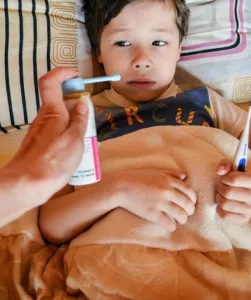
Pregnancy is a normal phenomenon if both the man and the woman are in good health.
If one aims to have a normal healthy pregnancy, it is important for both to eat balanced diet, get regular exercise, STOP smoking
and abstain from drinking alcohol.
Alcohol drinking in moderate amounts is effective in reducing stress. It is reported to bring pleasant and carefree feelings,
euphoria, conviviality, and increase overall effective expression, thereby decreasing tension, self-consciousness and
perhaps depression. It is also found to improve certain types of cognitive performance, decreases inhibitions. That is why in
some occasions, one opt for a liquid courage in going for a date,
As alcohol brings an effect on the physiological and mental aspect of our being, it is important to dissect effects of alcohol
on the person who plans to be pregnant.
If you are planning to conceive, it is safe to just stop drinking before becoming pregnant. The risk to your developing baby
from a low-level drinking before you know you are pregnant has not been fully determined, hence it is recommended that
one should stop alcohol consumption as soon as pregnancy was established to prevent any potential harm.
You may want to talk to your healthcare professional for support to stop drinking as this can be difficult to manage on your
own.
Fetal Alcohol Spectrum Disorder
Fetal Alcohol Spectrum Disorder (FASD) occurs when a mother drinks alcohol while pregnant. Like other drugs, alcohol can
pass from the mother’s blood to the baby via the placenta. It describes a broad group of conditions that an individual can
have as a result of prenatal alcohol exposure. Alcohol alters the development of the brain and many other body organs of
the developing fetus.
The term FASD includes all the following conditions:
- Fetal alcohol syndrome (FAS)
- Partial fetal alcohol syndrome (pFAS)
- Alcohol-related birth defects (ARBDs)
- Alcohol-related neurodevelopmental disorder (ARND)
- Neurobehavioral disorder associated with prenatal alcohol exposure (ND-PAE)
What is considered “a drink’?
In the United States, a “standard drink” is defined for as any alcoholic beverage that contains 0.6 fluid ounces (14 g) of pure
alcohol. In general, the means 12 oz of beer, 4 oz glass wine, 1 oz shot of hard liquor are each one standard drink. Mixed
drinks or alcohol served in restaurants/bars often contain more than one standard drink.
There is no safe type of alcoholic beverage to consume while pregnant. Red wine is no safer than white wine, beer, or
mixed drinks, since all contain alcohol.

Is there a safe amount of alcohol consumption during pregnancy?
This is the reason why anybody who plans to be pregnant should not take any alcohol. There is no safe amount of alcohol
when a woman is pregnant. Research evidence indicates that even drinking small amounts of alcohol while pregnant can
lead to:
- Miscarriage
- Stillbirth
- Pramaturity
- Birth Defects
- Sudden Infant Death Syndrome
Stop drinking as soon as you find out that you are pregnant. This is the best thing you can do for yourself and your baby. In
general, babies of mothers who stop drinking do better than babies of mothers who continue to drink. In addition, make
sure you get regular prenatal checkups and discuss your alcohol use with your health care provider. Don’t hesitate to ask
for advice, especially if you think you might have difficulty stopping your use of alcohol.
If I drank when I was pregnant, does that mean my baby will have FASD?
There is no point during pregnancy when drinking alcohol is considered safe. Adverse effects from alcohol can happen
at the earliest stages of pregnancy to the developing fetal brain, even before a woman realizes she is pregnant. Because
different aspects of the child are developing at all stages of pregnancy, alcohol’s effect on a developing baby can result
from alcohol use at any point during pregnancy. Alcohol is a known neurotoxin, so since the brain develops throughout
pregnancy, the developing brain and nervous system are always at risk.
It does not necessarily mean the baby will have FASD when the woman drinks while pregnant. Which babies will be affected
from prenatal alcohol exposure varies based on genetics, nutrition, environmental factors, and other exposures like
cigarette smoking. It is hard to predict which babies will be affected and how severely they will be affected from prenatal
exposure to alcohol. Discuss your FASD concerns with your child’s health care provider and be sure that you are honest
about your alcohol use.
How are FASDs diagnosed?
A pediatric medical provider or pediatric developmental specialist usually make the FASD diagnosis after one or more
appropriate evaluations. Diagnosing FASDs can be difficult because, there is no single or simple test that can cover the
broad range of FASD signs and symptoms. Be sure to ask your child’s pediatrician if you are worried he or she may have an
FASD and need further evaluation.
Certain physical findings, developmental problems, behavioral concerns, or school failure should trigger the parents and
the pediatric medical provider or pediatric developmental specialist to consider FASDs as potential diagnoses. Children
with FASD can have brain abnormalities that lead to problems in day-to-day functioning despite having a normal IQ, so
comprehensive evaluation is indicated.
All children with involvement in foster care or adoption processes – especially international adoptions – should always be
evaluated for a possible FASD.
Is there a cure for FASDs?
There is no cure for FASDs. It lasts for a lifetime. Identifying children with FASDs as early as possible can help them reach
their potential. Research has shown that early identification and enrollment in treatment can significantly improve an affected child’s development and life.
Are there treatments that help FASDs?
FASDs need a pediatric medical provider or pediatric developmental specialist to provide, coordinate, and facilitate all the
necessary medical, behavioral, social, and educational services required to help the child. Treatments have been shown to
help, but no one treatment is right for every child since one FASD differs from another.
The types of treatments available:
- Developmental services
- Educational interventions
- Behavior modification
- Parent training
- Social skills training
- Medications and other medical therapies
- Transition planning
- Advocacy in school and the workplace
- Referral for community support services
- Coordination across the specialists, partners, and needed supports
- Primary care in a high-quality medical home setting with care integration
Treatment plans should be adaptable to the child’s and family’s needs, plus include close monitoring




